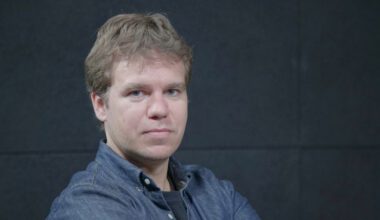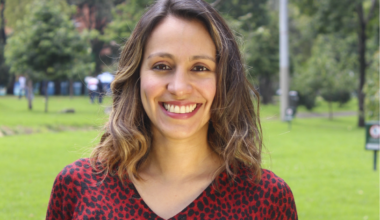LatAm List (La Voz) – Pierpaolo Barbieri is 32 years old and is a historian. About two years ago he decided to seek investors and launch a personal finance initiative. He created Ualá, a company that offers an app along with a Mastercard card, with which he has already incorporated one million people into the financial market, many of which did not meet the requirements of traditional banks.
Today he leads a company with 140 employees and, in the midst of an economic crisis, is hiring more than 20 people per month. His partners are George Soros, Steve Cohen, Goldman Sachs, and the Chinese giant Tencent. His peers describe him as open-minded, detail-oriented, and idea-driven. He is active on Twitter, where he is consulted on a daily basis by people that use Ualá’s services.
“I believe in Argentina. I came back after 13 years. I’m convinced that the next decades are going to be great for the country. I don’t let the (newspaper) headlines get me down. I’m motivated by the possibility of making the country grow, lowering unemployment and contributing to financial inclusion for everyone,” said the company’s young CEO.
Q: How would you explain Ualá to someone who’s unfamiliar with the app?
A: It’s your financial life in a card and a mobile-app. It’s not a bank and it doesn’t intend to replace it. It’s here to make people’s financial lives simpler. It allows users to manage everything from their cell phone, no closing times, no fine print, or hidden costs. That’s the revolution that we’re bringing to the table.
Q: How does the user experience start?
A: It starts by downloading the app. This (step) comes with an international Mastercard card that allows spending worldwide. We’re the first to offer expense analysis in the country and also a Clave Virtual Uniforme (CVU), that allows money transfers between virtual and traditional bank accounts.
Q: Does that guarantee interoperability?
A: It means that it’s completely interoperable, with entries and exits into any bank account in Argentina’s financial system. Users can pay for more than 4000 services across the country including the SUBE transportation card, which is rechargeable through the app. 75% of cell phones in Argentina are prepaid and can be topped up from our app. You can send money to anyone, free of charge, regardless of them having Ualá or not.
Q: How does a prepaid card work? Do you have to add credit with cash?
A: No. We don’t care if it’s credit or debit. We chose prepaid because it was the easiest to enter the market with. The card operates through the mobile-app. Our users upload their entire salary and administer it through the app.
Q: What do you think of the tension that exists between traditional banks and fintechs?
A: I believe in equal terms and competition. What used to be really bad was when the system was closed and nobody could compete. We are interoperable because banks were forced to cooperate. There are other fintechs that don’t want that; I do. I want to open the system. We’re not here to replace banks, we interoperate with them. We’re associated with four banks. With this (cooperation) we’ve reached a lot of people that were not included in the system.
Q: What percentage of people that use Ualá weren’t included in the financial system?
A: Around 50%. 40% use Ualá as their primary account. That means that we’re bringing people into the formal economy. This is financial inclusion. Even afterwards they’ll have a financial history if they want to go to a bank and open an account. People are starting to understand that cash is expensive and inefficient.
Q: Does Ualá target a specific audience?
A: No, anyone can use our service. More than 10% of the population between 18 to 25 years old has Ualá, or 3% of the entire population. We’re proud of reaching all these people. We have more than 60 000 underage kids, with limits set by their parents. They use a lot (of money) to buy online, top up their cell phone, and analyze their expenses.
Q: How do you see the business scaling in the future?
A: I don’t like to talk about the future, instead, I talk of the present. And what I can say is that every day we produce more than 5 000 cards. And I’m proud that almost 80% of those are outside of the Federal Capital, and 68% are outside of the Buenos Aires Metropolitan Area.
Q: You’re in a meeting with foreign investors. What do they say about Argentina? How do they see the country?
A: They see the potential of the country, of its technology, and of its hard-working people. They’re not afraid of the daily situation. To invest in Argentina you have to understand that it’s a bit of a cyclothymic country. And they’re not afraid of that, they believe in Ualá’s potential when they see the country’s need for financial services. They’re committed not only to the business, but also to the initiative’s social objective, which is to include more people that were left out of the system. We have a lot of people that banks ignored for decades.
Q: What reasons do you give them to invest in your company?
A: We’ve got investors that think of the future. They’ve invested in Ualá knowing that we’re going to lose money for 5 or 7 years, but we’re in this for the long-run. It’s Soros’ first investment in the country since Adecoagro; it’s Goldman Sachs’ first since 1999, and Tencent’s (Wechat owners) first in fintech.
Read the original interview in Spanish on La Voz.



